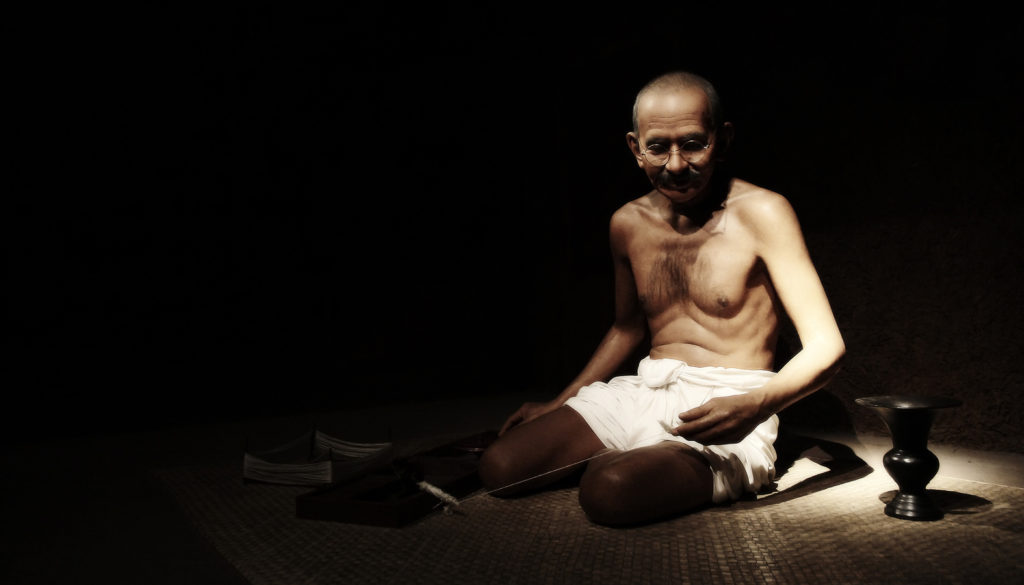People “who do not have a good religion will have a bad one. They will have a religions; they will have something to believe in.”
— American journalist and educator Milton Mayer
Author Costica Bradatan, a professor of humanities and philosophy, provides rich contemplative fodder in his recent book, “In Praise of Failure: Four Lessons in Humility” (Harvard University Press, $29.95).
The four subjects he selects are French intellectual Simone Weil, Mahatma Gandhi, Romanian philosopher E.M. Cioran, and Japanese writer Yukio Mishima.
“Gleefully breaching the boundaries between argument and storytelling, scholarship and spiritual quest,” runs the jacket copy, “Bradatan concludes that while success can give us a shallow sense of satisfaction, our failures can lead us to humbler, more attentive, and more fulfilling lives. We can do without success, but we are much poorer without the gifts of failure.”
Maybe … but these are failures that are willed, to one degree or another; controlled; failures that were meant to sidestep real failure and thus have the last word.
They’re failures in the same vein as motivational speaker Brene Brown’s “vulnerability,” which in her case has led to riches, success, and fame — else why would we be listening to her?
For starters, Mishima and arguably Weil were both suicides. That’s not “failure” — that’s abdication, at least the way they did it — Weil by self-starvation, Mishima by a public and carefully-staged hara-kiri.
Weil (1909-1943) was a Catholic-in-spirit philosopher/mystic, born to Jewish parents who at the age of 6 was already refusing to eat sugar in order to be in solidarity with the soldiers on the Western Front. Later she would refuse to be baptized, preferring to be in solidarity with the souls in hell. A brilliant student, after studying philosophy and logic at the École Normale Supérieure, she insisted on working in a factory in order be in solidarity with the common man, though she was incompetent, loathed the work, made no friends, and felt herself (understandably) to be a slave.
Upon volunteering as a nurse in the Spanish Civil War, she promptly stuck her foot in a pot of boiling oil, causing burns from which, combined with her refusal to eat, she eventually died.
It was her fondest wish. Repulsed at the prospect of sex, eating, and good health, she longed to “decreate” herself: to become blind, deaf, paralyzed, and then simply to disappear.
Gandhi, whose achievements on behalf of humankind are well known, nonetheless shamefully neglected his own wife and children and promulgated his “brand” to the point of absurdity: being poor takes a lot of money, an aide once ruefully observed.
For all his fame, he died an ostensible failure, felled by an assassin’s bullet in 1948, his dream of nonviolence kicked to the curb by the people he had loved and served.
Cioran (1911-1995), suffered a traumatic childhood and lifelong insomnia. Rather than give life his all, he announced with grim humor that he aspired to be a loser and embraced failure. He couldn’t be bothered to work, struggle, and participate along with the rest of us (though if, as he claimed, he spent his life being idle, how did his many books, among them “The Trouble with Being Born,” get written?).
Mishima was a Nobel-winning novelist and a rigid perfectionist who, sensing that his career was going downhill, staged a public self-disemboweling.
Bradaton writes compellingly of our cultural horror of loserdom, of the dangerous seduction of the crowd, of the evils of totalitarianism whose tentacles reach into every crevice of its victims’ consciences, psyches, and lives.
He notes how seldom we learn from our mistakes: Sadly and inexplicably, we perpetually repeat the genocides, the revolutions, the pogroms, the failed Utopian experiments.
And to his credit, he lays out his subjects’ nobility of spirit and their foibles with equal affection: Is this not us? he seems to be asking.
In a sense, yes. But to my mind each of the four tried to do an end run around the human condition. It’s as if they took it upon themselves individually to heal the effects of the Fall.
With no other outlet for her guilt at the plight of the poor, for example, Weil came to believe that every bite she took deprived someone else of food; every breath deprived someone else of air.
Gandhi, too, in his effort to reform mankind adopted self-deprivation as a kind of “religion,” imposing a celibate marriage upon his wife, barely eating, and shedding his clothes until he was all but displaying himself on the public stage naked.
This urge toward self-obliteration, as if our very existence were an offense, is profoundly anti-life.
Maybe truly being in solidarity with the poor instead consists in casting our lot with the rest of humanity, not placing ourselves above, below, or apart from it. Maybe humanity can never be reformed — only redeemed. Maybe there is no end run around the Fall; there is only the cross.
To that end, the most triumphant “failure” of the four may be Cioran. A virulent atheist who had planned to die by suicide, he forgot to kill himself in time, descended into dementia, and lived out his last years in a convalescent home.

